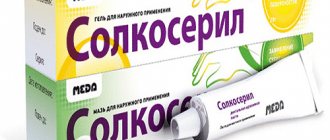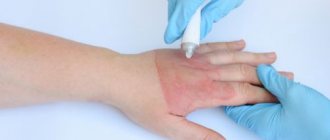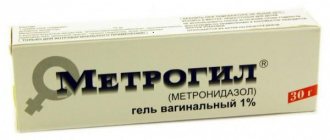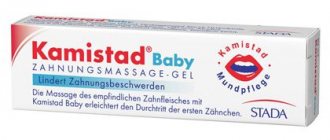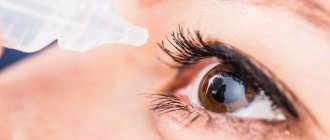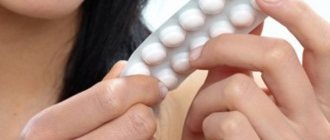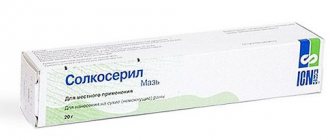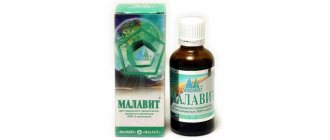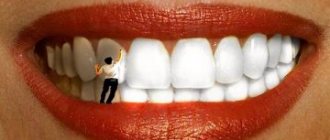One can write for a long time about such a universal remedy as Solcoseryl. The drug is multifaceted and unique in many ways. When we started collecting material about all areas of its application, we were amazed. Now you have the opportunity to familiarize yourself with this information. Perhaps you will learn something new and draw conclusions.
What is this article about? Firstly, about what Solcoseryl is, what it is made from, and in what forms it is produced. Secondly, about why and how this remedy is used. You will learn about the benefits, side effects and contraindications.
Compound
The composition of 1 ml of solution for injection includes 42.5 mg of the active substance solcoseryl (deproteinized dialysate from the blood of dairy calves) and water for injection as an auxiliary component.
1 g of eye gel contains 8.3 g of the active substance solcoseryl (deproteinized dialysate from the blood of dairy calves) and auxiliary ingredients: sodium carboxymethylcellulose, sorbitol, water for injection, benzalkonium chloride.
1 g of Solcoseryl ointment contains 2.07 mg of the active substance solcoseryl (deproteinized dialysate from the blood of dairy calves) and a number of auxiliary components: methyl parahydroxybenzoate, propyl parahydroxybenzoate, cetyl alcohol, cholesterol, white petrolatum, water for injection.
pharmachologic effect
Solcoseryl is a medicine that affects mainly metabolic processes in tissues. They activate tissue metabolic processes, improve trophism and stimulate tissue repair and regeneration when exposed to damaging factors.
Solcoseryl in injection form belongs to the pharmacotherapeutic group of hemodialysates and hemofiltrates, ointment and jelly - to the category of drugs used to treat wounds and ulcers (including poorly healing ones), gel - to the category of drugs used to treat ophthalmological diseases.
Solcoseryl in the fight against acne
Some sources recommend Solcoseryl for acne. But here we should initially make a clarification. Acne can be of different origins. For example, they often appear due to hormonal changes and disorders in the body. In this case, local influence on them is meaningless.
Sometimes an ointment is recommended to eliminate the effects of acne - unpleasant scars that do not want to heal for a long time. Often people cannot cope with this problem for years. In case of inflammatory skin diseases, accompanied by the appearance of small ulcers on the surface, Solcoseryl should not be smeared. This can lead to complications. Can only be used on acne spots. The drug significantly accelerates the skin restoration process.
Video - 3 super acne remedies
Pharmacodynamics and pharmacokinetics
The main component of Solcoseryl preparations are fractions of the blood of calves with natural low-molecular substances included in their composition, the molecular weight of which does not exceed 5000 daltons.
To date, its properties have only been partially studied. In vitro tests, as well as preclinical and clinical studies, have shown that calf blood extract:
- promotes the restoration and/or maintenance of aerobic metabolism and oxidative phosphorylation processes, and also ensures the replenishment of cells that do not receive sufficient nutrition with high-energy phosphates;
- in vitro enhances the utilization of oxygen and activates the transport of glucose into tissues and cells suffering from hypoxia and metabolically depleted;
- helps improve repair and regeneration processes in damaged tissues that do not receive sufficient nutrition;
- prevents the development or reduces the severity of secondary degradation and pathological changes in reversibly damaged cells and cellular systems;
- in in vitro models activates collagen synthesis;
- has a stimulating effect on the proliferation (reproduction) of cells and their migration (in in vitro models).
Thus, Solcoseryl protects tissues that are in a state of oxygen starvation and nutritional deficiency, and accelerates the processes of their restoration and healing.
Solcoseryl eye gel is a dosage form that was developed specifically for the treatment of damage to the stroma of the cornea.
The gel-like consistency of the product ensures its uniform distribution on the cornea, and good adhesive properties allow it to remain on it for a long period of time. The use of eye gel accelerates the restoration of damaged tissues and prevents scarring.
The rate and extent of absorption, distribution, as well as the rate and route of elimination of the active substance from the patient’s body cannot be determined using conventional pharmacokinetic methods, since protein-free calf blood extract has pharmacodynamic effects that are characteristic of molecules with different chemical and physical properties.
In the process of studying the pharmacokinetic characteristics of Solcoseryl solution in animals, it was found that after a bolus injection, the effect of the drug develops within half an hour. The effect lasts for three hours after administration of the solution.
What is Solcoseryl. Release forms
To create the drug, an extract of calf blood is used. It is specially deproteinized. For individual forms, such as ointment or jelly, water, carboxymethylcellulose sodium salt, propylene glycol, and other components are used. For the injection solution, only extract and distilled water are used.
The scope of application of Solcoseryl is different for each form. This can be help with burns, treatment of various injuries, cerebrovascular accidents, and eye diseases. The drug is also effective for venous insufficiency.
The dialysate contains a large number of amino acids, metabolites of various origins, electrolytes, etc. Dialysis and ultrafiltration are used for production. The effectiveness of the drug has been tested many times. Results of clinical and preclinical tests are available. They showed that Solcoseryl has the following effects on the body:
- accelerates the production of collagen protein;
- supplies high-energy phosphates to cells;
- improves energy metabolism;
- helps accelerate the delivery of glucose molecules into cells;
- improves the process of oxygen utilization;
- accelerates the recovery of soft tissue damage.
If the body's cells are deficient in oxygen and nutrients, Solcoseryl effectively eliminates this deficiency. Wound healing is accelerated. The effect of the drug begins differently for each patient. On average, this takes from 10 minutes to half an hour.
Many examinations were carried out, the purpose of which was to identify possible negative effects with regular use.
Dental paste is also popular. It has good adhesion to the mucosal surface. As a result, a thin protective film is formed, which not only protects from damage, but also anesthetizes and relieves superficial inflammation. The pharmaceutical industry also produces a special eye gel. It is used for injuries to the conjunctiva and cornea, ensuring healing of the injury and reducing the risk of scarring. Solcoseryl can be in the form of solutions, ointments, jelly, dragees, eye gel, infusion and even a special paste for the oral cavity. They have a common base - an extract from calf blood, but the additional substances are different. Let's look at each of the forms in more detail.
Indications for use
Solcoseryl injections - what are they for and what groups of patients are they prescribed for?
Solcoseryl in ampoules is indicated for patients who have been diagnosed with occlusive peripheral artery disease of the third or fourth degree according to the Fontaine classification and who have contraindications or intolerance to other vasoactive drugs.
It is also prescribed to patients with chronic venous insufficiency , which is accompanied by the formation of treatment-resistant trophic ulcers , as well as to patients with disorders of cerebral metabolism.
What is Solcoseryl ointment and jelly for?
The use of ointment and jelly is advisable for the treatment of minor injuries (for example, abrasions or cuts), frostbite, first and second degree burns (thermal or solar), difficult-to-heal wounds (for example, trophic skin disorders of venous etiology or bedsores ).
Indications for use of eye gel
Solcoseryl eye gel is recommended:
- for the treatment of mechanical injuries and erosive damage to the cornea and conjunctiva;
- to accelerate the healing processes of postoperative scars in the postoperative period (for example, after a cornea transplant, surgery to remove a cloudy lens, surgical treatment of glaucoma , etc.);
- for the treatment of burns of the cornea of various origins (thermal, chemical or radiation);
- for the treatment of ulcerative lesions of the cornea and keratitis of various etiologies;
- for dystrophic lesions of the cornea of various etiologies, including neuroparalytic keratitis , endothelial-epithelial dystrophy ( bullous keratopathy ), etc.;
- for the treatment of corneal xerophthalmia with lagofatalmos (non-closure of the palpebral fissure);
- to improve the tolerability of contact lenses and reduce the time of adaptation to them.
Indications for use of Solcoseryl dragees
The drug in the form of pills is taken to treat trophic and radiation ulcers , bedsores , gangrene , and chronic venous insufficiency . They are also prescribed to patients with gastric and duodenal ulcers and to patients who require skin and/or corneal grafting procedures.
Adhesive type dental paste
What is Solcoseryl adhesive dental paste used for? There are many diseases that cause the appearance of painful areas on the mucous membrane - erosions, ulcers, etc. The most common of them are stomatitis in aphthous and herpetic forms. Where any dental gel is powerless because it does not adhere to the mucous membrane, a paste with good adhesion to surfaces will have a much better effect.
In addition to stomatitis, doctors prescribe Solcoseryl for the treatment and local maintenance therapy of mucous membranes damaged due to injuries resulting from thermal, mechanical and chemical influences. Often the patient is injured during surgery. The paste is used to protect gums when wearing dentures.
If you have removed tartar and your gums have been damaged in the process, Solcoseryl will help you recover faster.
The properties of the paste make it possible to use it in the complex treatment of gums with periodontitis and any forms of gingivitis. It also helps relieve prolonged and painful teething in children and adults. Including when it comes to wisdom teeth.
The paste is a topical preparation. Before using it, it is necessary to remove moisture from the mucous membranes using a cotton swab. This will make the therapeutic effect last longer. Next, using your finger or a cotton swab, apply a small amount of paste to the gum or other affected area. Moisten it with water so that the substance does not dry out, leave for a while. The procedure is repeated up to five times a day. The course of treatment is from 3 days to 2 weeks. The paste is used after meals and hygiene procedures.
The drug is not compatible with alcohol. Therefore, you should not drink alcohol during treatment.
Contraindications
Administration of the solution is contraindicated in patients with known hypersensitivity to calf blood dialysates. The solution is also contraindicated for atopy and for persons allergic to milk.
Since the ointment, jelly and solution contain derivatives of parahydroxybenzoic acid , which are used as preservatives, as well as trace concentrations of benzoic acid in free form, it is not used in the presence of allergic reactions to the above substances.
Ointment and jelly should be prescribed with caution to persons with a predisposition to allergic reactions.
A contraindication to the use of eye gel is hypersensitivity to its components. Since the eye gel can cause temporary visual impairment, you should not drive a car or operate potentially dangerous machinery for half an hour after its use.
What they say in the reviews
Most people who have used the drug leave positive reviews about its effectiveness. At the same time, it should be clarified that Solcoseryl and its analogue Actovegin have not undergone independent testing. For this reason, they are banned in the USA, Japan and some other countries. In Russia and other CIS countries there is no such ban. The substance is actively used in various fields of medicine.
Speaking about negative comments, it is necessary to make a reservation - they relate to the use of the drug for purposes that are not intended by the manufacturer. In particular, we wrote above about acne. Any medicine must be used for its intended purpose, and self-medication can harm the patient’s health. Problems also often arise in people who are allergic to the active substance - deproteinized calf blood dialysate. Naturally, it cannot be perceived equally by the organisms of all people.
People can be allergic to any natural products - honey, milk, citrus fruits. It is not surprising that the body reacts specifically to the extract from the blood. If we are talking about topical use, it is recommended to do a test first. If there is no allergy, you can safely continue treatment with Solcoseryl.
Side effects
Administration of Solcoseryl IV or IM in very rare cases (their frequency does not exceed 0.1%) provokes the development of allergic or anaphylactic reactions, which are most likely caused by class E immunoglobulins.
If body temperature rises, urticaria , swelling and hyperemia at the site of drug administration, the use of Solcoseryl is stopped, and symptomatic treatment will be prescribed to eliminate the symptoms that appear.
Since the solution contains potassium, its administration may cause pain at the injection site.
When using Solcoseryl cream, a short-term burning sensation may be felt at the site of application. Discontinuation of the drug is required only in cases where the unpleasant sensation does not disappear for a long period of time.
In isolated cases, the use of jelly and ointment can cause the development of allergic reactions. If allergy symptoms appear, the use of these products should be discontinued.
Toxicological studies of Solcoseryl eye gel have shown the high safety of this drug when used for its intended purpose in accordance with the instructions.
After instillation of the product, a short-term burning sensation and mild irritation may be observed, which are not reasons for stopping treatment. Repeated instillations in rare cases provoke the development of allergic reactions (a similar effect is also observed during treatment with other ophthalmic drugs for topical use).
Brief summary
Without a doubt, this invention of pharmacology is unique. Its successful application in a dozen areas of medicine proves that it has a bright future. At the same time, many effects and properties have not yet been studied. Modern researchers have many questions, the answers to which will soon be found. Practice has shown that Solcoseryl is quite safe. Anaphylactic events are so rare that cases can hardly be considered statistics.
We hope that our review article helped you learn a lot of new things. This concludes our story and is waiting for your comments!
Instructions for use of Solcoseryl (Method and dosage)
Solution for injection, instructions for use
In cases where the patient's condition allows, the drug is recommended to be used in the form of an injection solution diluted at least 50:50 with saline or glucose solution.
Solcoseryl in ampoules is intended for slow administration in the form of intravenous injections or infusions. If intravenous administration is not possible, the drug can be injected into the muscle.
Since the drug in its pure form is a hypertonic solution, it should be administered slowly.
For intravenous infusion, the drug should be pre-diluted with 0.25 l of 0.9% NaCl solution or 5% glucose solution. Solcoseryl solution is administered intravenously by drip. The rate of administration depends on the hemodynamic status of the patient.
Patients with occlusive disease of peripheral arteries of the third or fourth degree according to the Fontaine classification are shown daily injection into a vein of 0.85 g (or 20 ml of undiluted solution) Solcoseryl.
The duration of use is usually up to four weeks and depends on the clinical situation.
Patients with chronic venous insufficiency , which is accompanied by the formation of treatment-resistant trophic ulcers , are indicated for intravenous administration of 0.425 g (or 10 ml of undiluted solution) Solcoseryl three times a week.
The duration of the course of treatment should not exceed four weeks (it is determined depending on the nature of the disease).
To prevent the appearance of peripheral venous edema , therapy is supplemented by applying a pressure bandage using an elastic bandage. If the patient has skin trophic disorders, treatment is carried out by combining injections or infusions of Solcoseryl solution with the use of jelly, and then ointment.
Patients who have suffered ischemic or hemorrhagic stroke are prescribed daily intravenous administration of 0.425 or 0.85 g of Solcoseryl (10 or 20 ml of undiluted solution) as the main course. The duration of the main course is 10 days.
Further treatment involves daily administration of 85 mg (or 2 ml of undiluted solution) Solcoseryl for one month.
In severe forms of brain contusions, daily injection of 1000 mg of Solcoseryl into a vein (corresponding to 23-24 ml of undiluted solution) is prescribed for 5 days.
The drug is administered intramuscularly undiluted at a dose of 2 ml/day.
Solcoseryl jelly and ointment: instructions for use
Cream and ointment are intended for application directly to the wound surface. Before using these dosage forms, the wound is first cleaned using a disinfectant solution.
Patients with trophic ulcers , as well as in cases of purulent infection of wounds, require preliminary surgical treatment before starting treatment.
When using jelly and ointment for frostbite , as well as for treating ulcers and skin injuries, it is important to remember that only sterile dressings should be used to treat damaged areas.
The gel is intended for application to fresh (including wet) wounds and weeping ulcers. The product is applied in a thin layer to a previously cleaned wound surface two or three times a day.
To treat areas where epithelization has begun, the use of ointment is indicated. The use of jelly is advisable until pronounced granulation tissue begins to form on the damaged surface of the skin and the wound begins to dry out.
The ointment is used primarily to treat dry wounds. The product is applied in a thin layer to a previously cleaned wound surface once or twice a day. If necessary, cover the treated surface with a bandage.
The course of treatment with the drug in this dosage form continues until the wound heals and is completely healed with elastic tissue.
For patients with severe trophic damage to the skin and soft tissues, it is recommended to combine jelly and ointment with the injection form of Solcoseryl.
Experience with the use of jelly and ointment for children is limited.
The drug does not have such release forms as suppositories. However, in the complex therapy of chronic colitis (inflammation of the colon), microenemas with Solcoseryl jelly are often prescribed.
Before use, the jelly contained in the tube (all 20 g) is added to 30 ml of warm water and after the enema procedure, which is carried out to cleanse the intestines, it is administered daily for 10 days.
Solcoseryl eye gel, instructions for use
Unless otherwise instructed by the attending physician, the eye gel is instilled into the conjunctival cavity, one drop three or four times a day. It is recommended to use the product daily until complete recovery.
In particularly difficult cases, eye ointment can be used one drop per hour. If the patient is simultaneously prescribed eye drops and Solcoseryl eye gel, the gel should be applied approximately half an hour after the drops.
During the period of adaptation to contact lenses, the drug is instilled into the conjunctival cavity immediately before installing the lenses and immediately after removing them.
Dragee Solcoseryl: instructions for use
The instructions recommend taking 100 mg tablets three times a day.
special instructions
Studies regarding the safety of using Solcoseryl solution for the treatment of children have not been conducted, therefore the drug is not recommended for the treatment of children under the age of 18 years.
Experience in treating children with the use of eye gel and topical dosage forms of the drug is also limited.
Solcoseryl in ampoules should be administered separately from other drugs (it is especially incompatible with phytoextracts). The exceptions are isotonic 0.9% NaCl solution and 5% glucose solution. It is also not recommended to dilute the product in potassium-containing solutions for infusion.
Eye gels are characterized by the ability to stick to contact lenses, so it is recommended to stop wearing lenses during treatment with the drug.
If allergic reactions associated with the use of the drug occur, you should immediately report them to your doctor. If the drug is used to treat an infectious disease of the cornea, therapy is supplemented with the prescription of appropriate antimicrobial agents.
Avoid contact of the gel with soft contact lenses as it may discolor them.
If necessary, treatment with Solcoseryl can be supplemented with antibacterial, vasodilating and other drugs.
Solcoseryl in cosmetology: for the face, hands, rough elbows and heels, for the skin around the eyes
In medicine, Solcoseryl preparations are used to accelerate the healing of damaged skin; in home cosmetology, they are used as a remedy for acne, stretch marks, and wrinkles. They are used to soften the skin, increase its turgor, improve complexion and eliminate acne .
In cosmetology, the ointment can be used as a stand-alone product (it is applied pointwise to problem areas, in the form of a mask once a week before bedtime and two to three times a week on the skin around the eyes), or in combination with other products, in particular with the drug Dimexide . Let's look at how to use these medications together.
For the face, Dimexide and Solcoseryl are used as follows: on the face, neck and décolleté, previously cleaned with peeling agents (you can also do alkaline peeling using tar soap, salt and soda), apply a solution of Dimexide with water, prepared in a ratio of 1:10 (enough dilute 5 ml (teaspoon) of Dimexide in 50 ml of water); Before the product has time to be absorbed, Solcoseryl ointment is applied to it in a thick layer.
If the gel is used in cosmetology, then the mask should be periodically sprayed with thermal water (you can also use regular water through a spray bottle). The mask is left on the face for about half an hour to an hour, then washed off and a light hypoallergenic cream is applied to the skin.
According to women who have tried this mask recipe on themselves, Solcoseryl ointment is more comfortable for the face than gel (after application, you don’t have to wash it off, just remove the residue with a napkin). In addition, it is not recommended to use a gel mask more than once a month.
Used as a remedy for wrinkles around the eyes, Solcoseryl ointment has proven itself to be a very effective remedy. Applying it like a regular cream, within a week you can see that the number of wrinkles and wrinkles has decreased, the skin has tightened and smoothed, and its color has become fresher and healthier.
Dimexide and Solcoseryl are no less effective against wrinkles, and perhaps even more effective. This is due to the ability of Dimexide to enhance the penetration of the active substance of drugs deep into the tissue. After using these products in combination, skin irregularities and imperfections disappear, and the effect of the mask is comparable to the effect of Botox .
The gel and ointment can also be used to soften rough skin on the elbows and heels. It is best to apply them to problem areas before bed.
Solcoseryl injections for stomach and duodenal ulcers
Treatment courses of 1-2 months are recommended. After injections into the gastrointestinal tract, the processes of growth of epithelial tissue with fibrin are resumed. This allows you to speed up healing, prevent necrosis and oxygen deficiency, and improve blood supply to the affected area.
- The drug is administered intramuscularly, including for the purpose of preventing exacerbation of ulcers.
- Contraindicated under 18 years of age, during pregnancy, and during breastfeeding.
- If you are hypersensitive, you should stop injections and consult a specialist.
Analogues of Solcoseryl
- Aekol
- Acerbin
- Bepanten
- Shostakovsky Balm
- Wundehill
- Depanthol
- Contractubex
- Pantekrem
- Pantexol Yadran
- Panthenol
- Pantestin
- Hepiderm Plus
- Echinacin Madaus
Reviews of Solcoseryl
Almost all reviews left on the forums about injections, eye gel, jelly and Solcoseryl ointment are positive. Rare negative reviews are due largely to the fact that the drug provoked allergic reactions associated with intolerance to its active component.
Reviews of Solcoseryl gel and the drug in the form of an ointment allow us to conclude that these drugs effectively cope not only with minor scratches and minor burns, but also help cure difficult-to-heal wounds and ulcers.
The effectiveness of the ointment in cosmetology is also highly appreciated. Reviews of Solcoseryl ointment for the face indicate that this is truly an indispensable product for those who want to quickly get rid of wrinkles, acne, and simply improve the color and tone of the skin.
Gel is no less effective against wrinkles, but cosmetologists believe that it should not be used as part of masks too often (optimally - once a month). The ointment can be used as a regular cream.
The effectiveness of Solcoseryl against wrinkles increases when combined with Dimexide , which is due to the latter’s ability to improve the penetration of the active substance deeper into the skin.
Solcoseryl in the treatment of baldness
Not long ago, articles began to appear that scientists in the CIS tried Solcoseryl in the treatment of baldness caused by a lack of micro and macroelements - selenium, zinc, potassium, copper, sulfur, etc. No, this is not nonsense, as is the case with wrinkles , because the substance is administered in the form of injections and can penetrate where the effect is required. An experiment was conducted for which volunteers were recruited - men and women in a ratio of 2 to 8 in favor of the fair sex. For injections, liquid was used - 5 ml x 10 or 20 procedures.
Based on the results, the following conclusions were obtained:
- the drug is effective in the treatment of telogen effluvium;
- the effect is best manifested after 2-3 months of therapy;
- no side effects were identified, the subjects had no complaints.
However, this does not mean that there is a 100% chance that any person will be cured using Solcoseryl.
Solcoseryl price, where to buy
The price of Solcoseryl gel 20 g in Russia is about 2,600 rubles.
The average price of Solcoseryl in ampoules of 5 ml No. 5 in Ukrainian pharmacies is about 500 hryvnia.
- Online pharmacies in RussiaRussia
- Online pharmacies in UkraineUkraine
- Online pharmacies in KazakhstanKazakhstan
LuxPharma* special offer
- Solcoseryl ointment tube 20g
RUB 2,170 order - Solcoseryl injections/solution for injection (Solcoseryl ampoules) 42.5 mg/ml 5 ml No. 5
RUR 4,780 order
Pharmacy Dialogue
- Solcoseryl gel (tube 20g)Legacy
RUB 2886 order
show more
Pharmacy24
- Solcoseryl 5 ml No. 5 injection solution Legacy Pharmaceuticals, Sweetseland GmbH, Switzerland
515 UAH. order - Solcoseryl 4.15 mg/g 20 g gel Legacy Pharmaceuticals, Sweetseland GmbH, Switzerland
164 UAH order
- Solcoseryl 2.07 mg/g 20 g ointment Legacy Pharmaceuticals, Sweetseland GmbH, Switzerland
136 UAH order
- Solcoseryl 42.5 mg/ml 2 ml N25 injection solution Legacy Pharmaceuticals, Sweetsland GmbH, Switzerland
919 UAH. order
PaniPharmacy
- Solcoseryl ampoule Solcoseryl injection solution ampoules 2ml No. 25 Switzerland, Legacy Pharmaceuticals Switzerland
950 UAH order
- Solcoseryl gel Solcoseryl jelly 10% 20g Switzerland, Legacy Pharmaceuticals Switzerland
161 UAH order
- Solcoseryl injection solution ampoules 5 ml No. 5 Australia, Legacy Pharmaceuticals Sweetsland GmbH
476 UAH. order
- Solcoseryl ampoule Solcoseryl injection solution ampoules 5ml No. 5 Switzerland, Legacy Pharmaceuticals Switzerland
545 UAH. order
- Solcoseryl jelly 10% 20g Australia, Valeant Pharmaceuticals Sweetsland
181 UAH order
show more
Cost of the drug
The ointment is inexpensive. In pharmacies of the Russian Federation - up to 200 rubles, in Ukraine - up to 80 hryvnia. For the gel you will pay 300 rubles in Russia and 80 hryvnia in Ukraine. For a package of dental paste in Ukraine they charge up to 160 hryvnia, and in the Russian Federation - about 400 rubles. Retail prices are average as of the end of 2016. In some regions, the cost may have changed up or down.
Currently, the drug is available in most CIS cities. You don't need a doctor's prescription to buy it.
